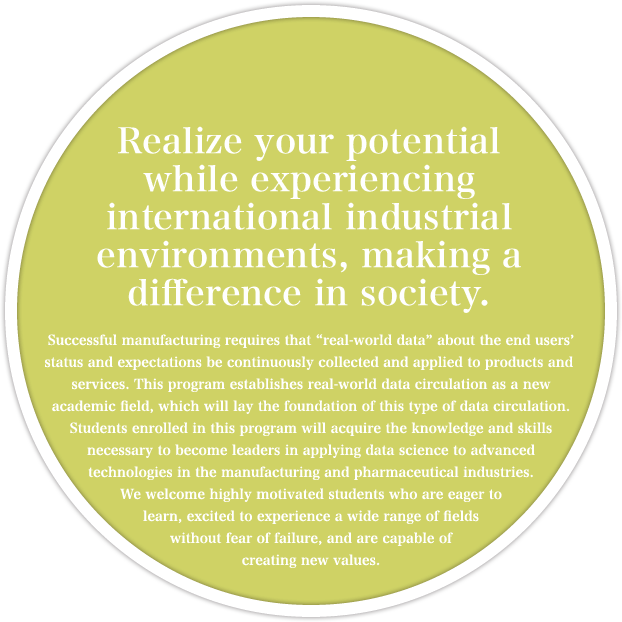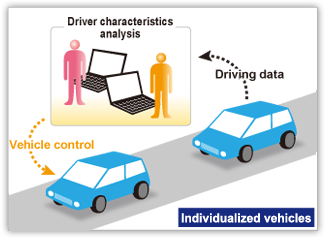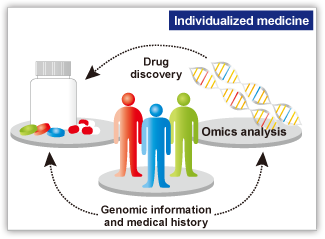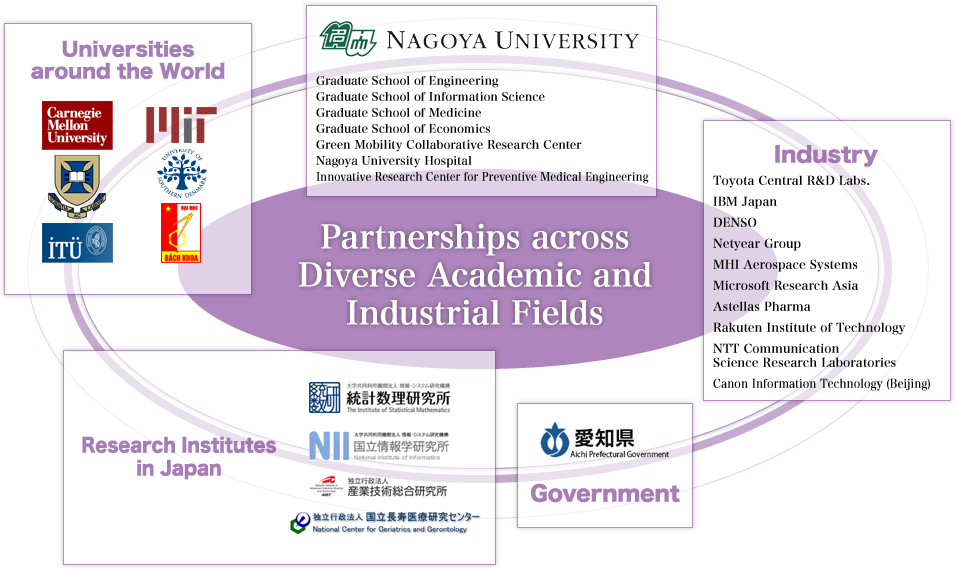Nagoya University
Graduate program for real-world data circulation leaders
Nagoya University
Graduate program for real-world data circulation leaders

NOW ACCEPTING
2024 APPLICATIONS!
The RWDC Program is now accepting
applications for the 11th inaugural class,
which will start in April 2024.
Admission guidelines are found here.





Successful candidates will have passed the entrance exam for the first half of a doctoral course at the university. The selection process is based on the total scores of performance in the selection program, a document review, an interview, and a written exam.

For example, those who want to become data scientists and acquire technical knowledge and experiences that would enable them to make a difference in the world.

For example, those who aspire to give back to society through research by applying their work experience and acquiring relevant technical knowledge. (An intensive version of the program is available for students with work experience.)

For example, those who want to learn about the automotive field, which is one of the greatest strengths of Nagoya University, and those who want to know about real-world data circulation through this highly unique program. (Students may enter in the fall semester.)

For more information:

Students will experience the circulation between development and basic research through activities in an industrial workplace and acquire practical knowledge and skills that cannot be taught in the classroom.
1) Industry-Academia-Government Collaboration Projects (work as part of a team to solve issues)
Students will join a team in which every member is assigned a specific role to work on an industry-academia-government collaborative research project. Projects last about six months and are determined by the university.
2) Research Internships (experience being part of a corporate organization)
Students will conduct research in industry and experience corporate management.
Collaborating Companies (expected)
| Toyota Central R&D Labs. | IBM Japan |
| DENSO | Netyear Group |
| MHI Aerospace Systems | Microsoft Research Asia |
| Astellas Pharma | Rakuten Institute of Technology |
| NTT Communication Science Research Laboratories | Canon Information Technology (Beijing) |

Students will enroll in a summer school program at an Asian company outside of Japan, and will conduct research at an overseas research institute to learn first-hand about global industrial circulations and experience cross-cultural collaborations.
1) Global Challenge I
Collaborate with people from different cultures
Students will participate in a two-week (approx.) summer program with local students and young engineers in Hanoi or Istanbul, which are both major manufacturing cities, and gain first-hand experience about the international division of labor in global industries.
2) Global Challenge II
Experience world-class research
Students will stay in a foreign country for about three months to conduct research at an overseas research institute. They will develop an understanding of international competition among world-class researchers, and forge ties with some of the brightest young researchers in the world.
3) Follow-up Visit
Build international ties
Students will revisit the research institute in which they worked for one to two weeks with a group of students with other areas of expertise. In addition to learning about cutting-edge research in different fields, students will expand their personal professional networks.


